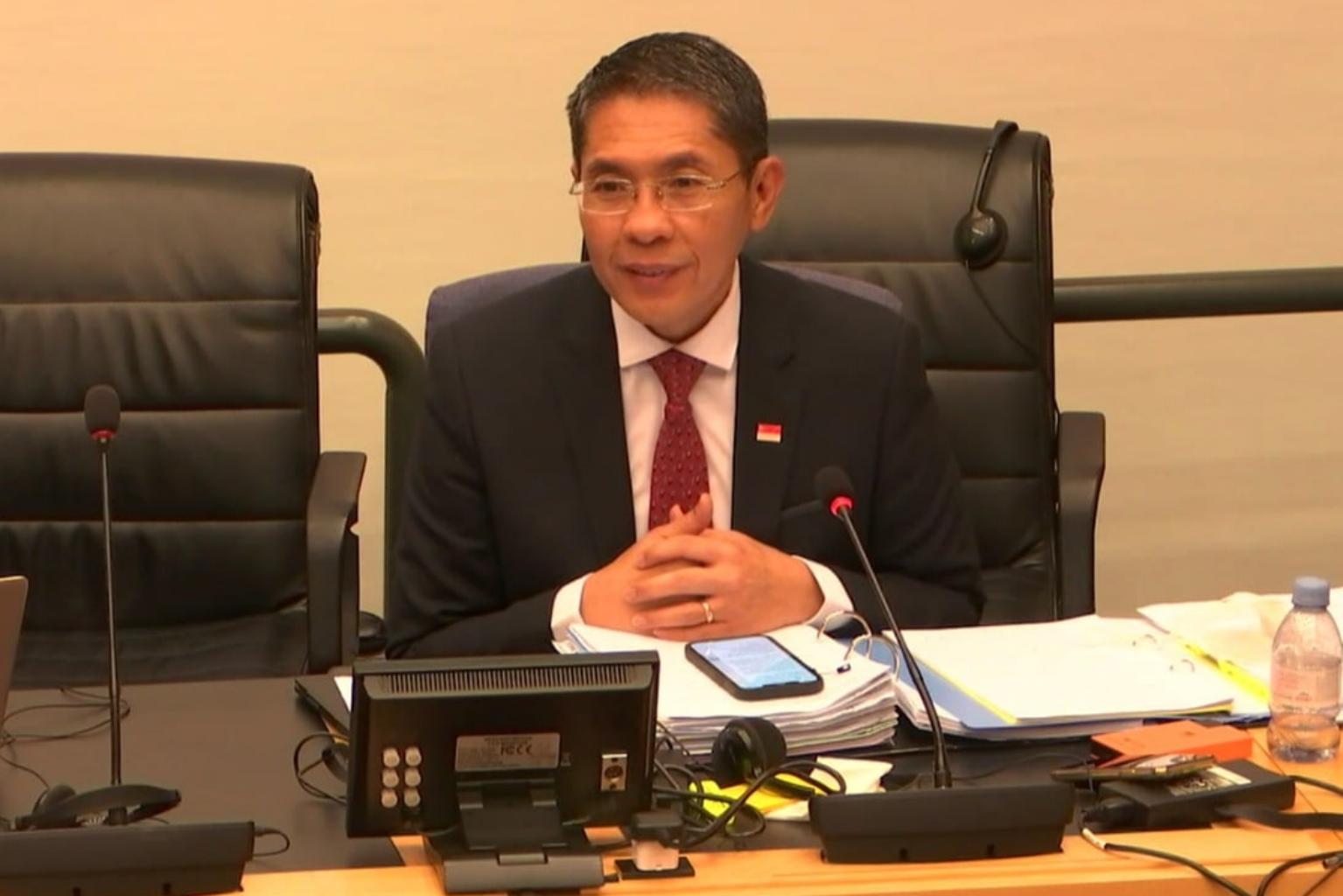Singapore addresses United Nations committee on efforts to eliminate racism
Sign up now: Get ST's newsletters delivered to your inbox

Minister in the Prime Minister's Office Maliki Osman spoke before the UN committee on Nov 19, 2021.
PHOTO: DR MALIKI OSMAN/FACEBOOK
Follow topic:
SINGAPORE - Racial harmony in Singapore is not a destination but a work in progress, and the Republic cannot take for granted what it has achieved so far, Minister in the Prime Minister's Office Maliki Osman said in Geneva, Switzerland, on Friday (Nov 19).
Speaking before a United Nations committee on the elimination of racial discrimination, Dr Maliki said: "We recognise that the racial harmony we enjoy today is by no means assured. It is sustained by human will and effort.
"We continually review our laws and policies. We expand common spaces and shared experiences for everyone. We engage with citizens, civil society organisations, and major partners to design and run programmes promoting social harmony, mutual understanding and respect for one another."
As Covid-19 reshapes the world and Singapore adapts to a new normal, the country will also ensure that ethnic minorities are not disadvantaged, added Dr Maliki, who is also Second Minister for Education as well as Foreign Affairs.
He was presenting updates on Singapore's racial harmony efforts and responding to comments by the committee which reviews UN members' commitment to the International Convention on the Elimination of All Forms of Racial Discrimination (ICERD).
Singapore signed the convention in October 2015 and ratified it in November 2017. The Republic submitted its first report on the various measures it was undertaking to end racial discrimination in December 2018, and this is its first review by the committee.
Besides the official state report, several civil society organisations also submitted their own shadow reports on the subject.
During a two-day dialogue with the committee, the Singapore delegation led by Dr Maliki reaffirmed the country's commitment to the twin principles of multiracialism and meritocracy, which ensures opportunities for all citizens, and to eliminating racial discrimination.
It also spoke about Singapore's founding ideals of building a multiracial, multi-religious society and how its policies - including more recent measures - have served to strengthen and protect its racial and religious harmony.
Dr Maliki said this vision has informed Singapore's policymaking today, with its approach anchored on legislative safeguards for racial and religious harmony, policies that foster social integration and protect the interests of minorities, and programmes that inculcate mutual understanding and respect within the community.
He cited the planned enactment of a Maintenance of Racial Harmony Act and Singapore's plans to enshrine workplace anti-discrimination guidelines into law as some examples of such efforts.
He noted that several recent incidents that were racially motivated have received attention, but have been condemned at the highest levels and investigated, and action has been taken within existing laws
The committee posed questions and offered comments as well as suggestions on further measures to eliminate racial discrimination.
UN country rapporteur for Singapore, Mr Marc Bossuyt of Belgium, recommended Singapore impose a moratorium on the death penalty to find out if it would cause a rise in criminality. The committee also raised other issues including the law against fake news and the prosecution of activists, among others.
The Singapore delegation said it would take the committee's observations back for consideration.
Shifting social attitudes will require partnerships with civil society groups, employers, businesses, workers, and the public, it added.

